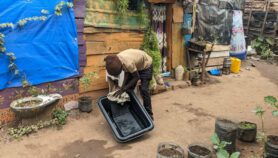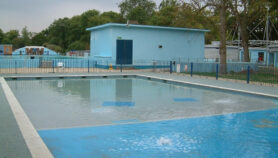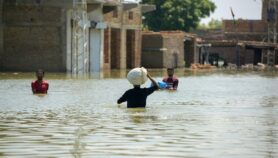By: Yojana Sharma
Send to a friend
The details you provide on this page will not be used to send unsolicited email, and will not be sold to a 3rd party. See privacy policy.
The United States’ push to set up a new international freshwater institute under UNESCO auspices is being seen as part of Washington’s return to multilateralism and a US vote of confidence in UNESCO as a lead agency for science, and for water in particular.
The Center for Integrated Water Resources Management, hosted by the US Army Corps of Engineers in Alexandria, Virginia, is set to become UNESCO’s first US-based institute.
"We consider UNESCO to be a serious part of the UN system and we want to take the UN system as a whole seriously," says Steven Engelken, the US delegate to UNESCO in Paris.
Water security is "the next climate change" as a global concern, Engelken says. "We can all see looming problems for the future."
The centre is already linked to a number of US government agencies, universities and scientific organisations. Linking up to the UN "will be a mechanism to work with a very robust group of institutes of UNESCO," says Engelken, who has been lobbying hard in Paris on behalf of the US administration.
UNESCO is the UN agency for education science and culture, and its International Hydrology Programme (IHP) has a network of some 17 water-related institutes around the world.
As a designated UNESCO institute, the centre in Alexandria would work on transferring water management practices and technologies to developing countries.
According to the UN 1.1 billion people in developing countries, nearly one-sixth of the world’s population, have limited access to fresh water. Urbanisation, population growth and climate change are putting pressure on water supplies, increasing the possibility of conflict over resources.
"What scientists, including those in the United States, are looking at is security of access," says Patricia Wouters, director of UNESCO’s IHP Centre for Water Law, Policy and Science at Dundee University in Scotland. "Water is not about money, but about access. There is no development without water."
UNESCO director-general Koïchiro Matsuura, said recently that for millennium development goals in water and sanitation to be met, a 300 per cent increase in the number of water specialists would be needed in Africa alone.
Engelken says the new UNESCO institute will be formally created by October "if all goes well". As a ‘Category-2 institute’ it would be funded by the US rather than UNESCO in Paris.
The only hurdle is for the move to be officially approved by UNESCO member states. But as it has no budgetary implications no problems are expected.













